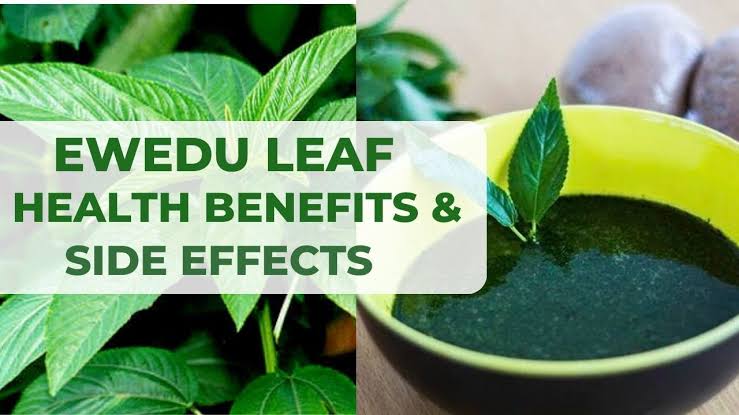- Get link
- X
- Other Apps
JUST IN
- Get link
- X
- Other Apps

Ewedu leaf is a green, leafy vegetable popular in West Africa, especially among the Yoruba people of Nigeria. It is also known as jute leaf, molokhia, or rau day in other regions of the world. Ewedu leaf has a slimy texture when cooked, similar to okra, and is often used as the main ingredient of Ewedu Soup in Yoruba land.
Ewedu leaf is delicious, nutritious, and has many health benefits. However, it also has some potential side effects and precautions you should know before consuming it.
Health Benefits of Ewedu Leaf
Ewedu leaf has been used for centuries as a medicinal herb in Ayurveda and other traditional systems of medicine. Some of the health benefits of Ewedu leaf are:
- Ewedu Leaf Benefits for Diabetes
- Ewedu leaf may help reduce inflammation due to its omega-3 fatty acids and antioxidants.
- Omega-3 fatty acids can regulate the production of inflammatory molecules and reduce the risk of chronic diseases such as cardiovascular disease, diabetes, and arthritis.
- Antioxidants can safeguard cells against oxidative stress and prevent tissue damage and inflammation.
Ewedu Leaf Benefits for Cancer Prevention
- Ewedu leaf is a good source of vitamins C and A, flavonoids, phenolic acids, and tannins.
- Antioxidants can counteract free radicals and prevent oxidative damage to cells and DNA.
- Oxidative stress is associated with ageing and various diseases such as cancer, diabetes, etc.
Ewedu Leaf Benefits for Digestion
- Ewedu leaf can also be of benefit to your digestive health, as it is rich in fibre and mucilage.
- Fibre can promote bowel movements, prevent constipation, feed the beneficial bacteria in the gut, and improve gut health.
- Mucilage is a soluble Fibre that forms a gel-like substance when mixed with water.

Comments
Post a Comment
Let know your comments